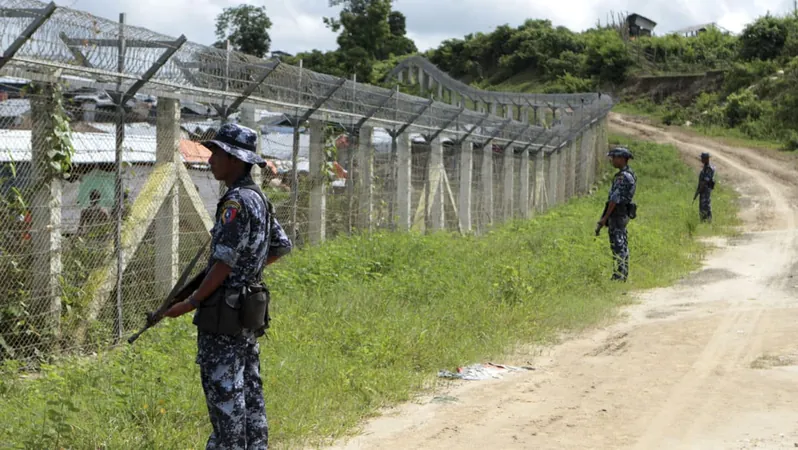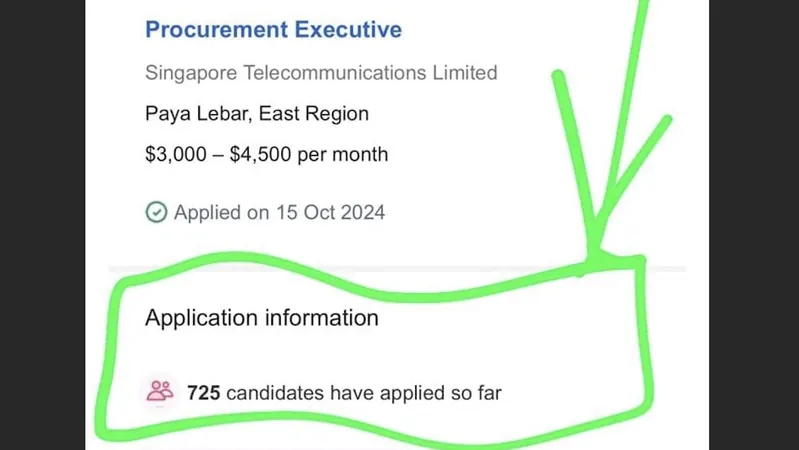
Myanmar's Junta Unveils Election Plans Amid Civil War: What You Need to Know!
2024-12-19
Author: Yu
Myanmar's Ruling Junta Announces Election Plans
In a development that could reshape the political landscape in Southeast Asia, Myanmar's ruling military junta has revealed its intentions to hold an election next year, despite an escalating civil war. This announcement came during discussions with neighboring countries, which included plans to potentially invite foreign observers for the polls, according to Thai officials.
Regional Meetings in Thailand
This week, Thailand is hosting two major regional meetings focused on the crisis in Myanmar, a country that has faced profound turmoil since the military's coup in February 2021, which ousted an elected government. The first of these meetings involved Myanmar's immediate neighbors—China, Bangladesh, and India—while the second, scheduled for Friday, will involve key members of the Association of Southeast Asian Nations (ASEAN).
Junta's Political Roadmap
During Thursday's meeting, Myanmar's foreign minister Than Swe laid out the junta's political roadmap, outlining progress on election preparations, including a census and the registration of 53 political parties. Thai Foreign Minister Maris Sangiampongsa provided insights into this rare briefing, indicating an intention to welcome foreign election observers, potentially from neighboring nations.
Criticism of Election Plans
Myanmar has faced rampant civil unrest and a growing armed rebellion following the coup, alongside a crumbling economy and widespread discord among political factions. Critics of the junta have dismissed the planned elections as a mere facade to legitimize its rule, as many political parties remain banned and pro-democracy activists continue to be suppressed.
Neighboring Countries' Response
Nevertheless, the junta's election plans have elicited a seemingly positive response from Myanmar’s neighbors, as noted by Thai foreign ministry spokesman Nikorndej Balankura, who emphasized the collective desire for a swift resolution to the ongoing crisis. "The foreign minister of Myanmar stated that there is an open door for inclusive political dialogue," he remarked, underscoring the junta's willingness to engage.
ASEAN's Five Point Consensus
While there is a focus on dialogue, Thai officials reiterated that ASEAN's 'Five Point Consensus,' aimed at restoring peace in Myanmar, will remain pivotal in regional efforts. The upcoming ASEAN-level discussions will be closely observed, as Member States work together to address the ramifications of the civil war.
Complexity of the Situation
Adding a layer of complexity to the situation is Malaysian Prime Minister Anwar Ibrahim's invitation to former Thai leader Thaksin Shinawatra as a personal advisor. Thaksin, a billionaire with significant political clout, has previously expressed interest in mediating the Myanmar conflict, indicating a shared interest in stabilizing the region.
Thailand’s Aspirations
Experts suggest that these meetings signify Thailand's aspiration to play a more influential role in resolving the Myanmar crisis. Dulyapak Preecharush, a political analyst at Thammasat University, pointed out, “This initiative is a test for Thailand, demonstrating its commitment to fostering dialogue among affected nations.”
Future Outlook
As the situation continues to evolve, all eyes will remain on Myanmar and the unfolding regional dynamics, with many wondering whether the junta's election plans will lead to genuine political change or remain a contentious issue in the ongoing struggle for democracy in the country.


 Brasil (PT)
Brasil (PT)
 Canada (EN)
Canada (EN)
 Chile (ES)
Chile (ES)
 España (ES)
España (ES)
 France (FR)
France (FR)
 Hong Kong (EN)
Hong Kong (EN)
 Italia (IT)
Italia (IT)
 日本 (JA)
日本 (JA)
 Magyarország (HU)
Magyarország (HU)
 Norge (NO)
Norge (NO)
 Polska (PL)
Polska (PL)
 Schweiz (DE)
Schweiz (DE)
 Singapore (EN)
Singapore (EN)
 Sverige (SV)
Sverige (SV)
 Suomi (FI)
Suomi (FI)
 Türkiye (TR)
Türkiye (TR)